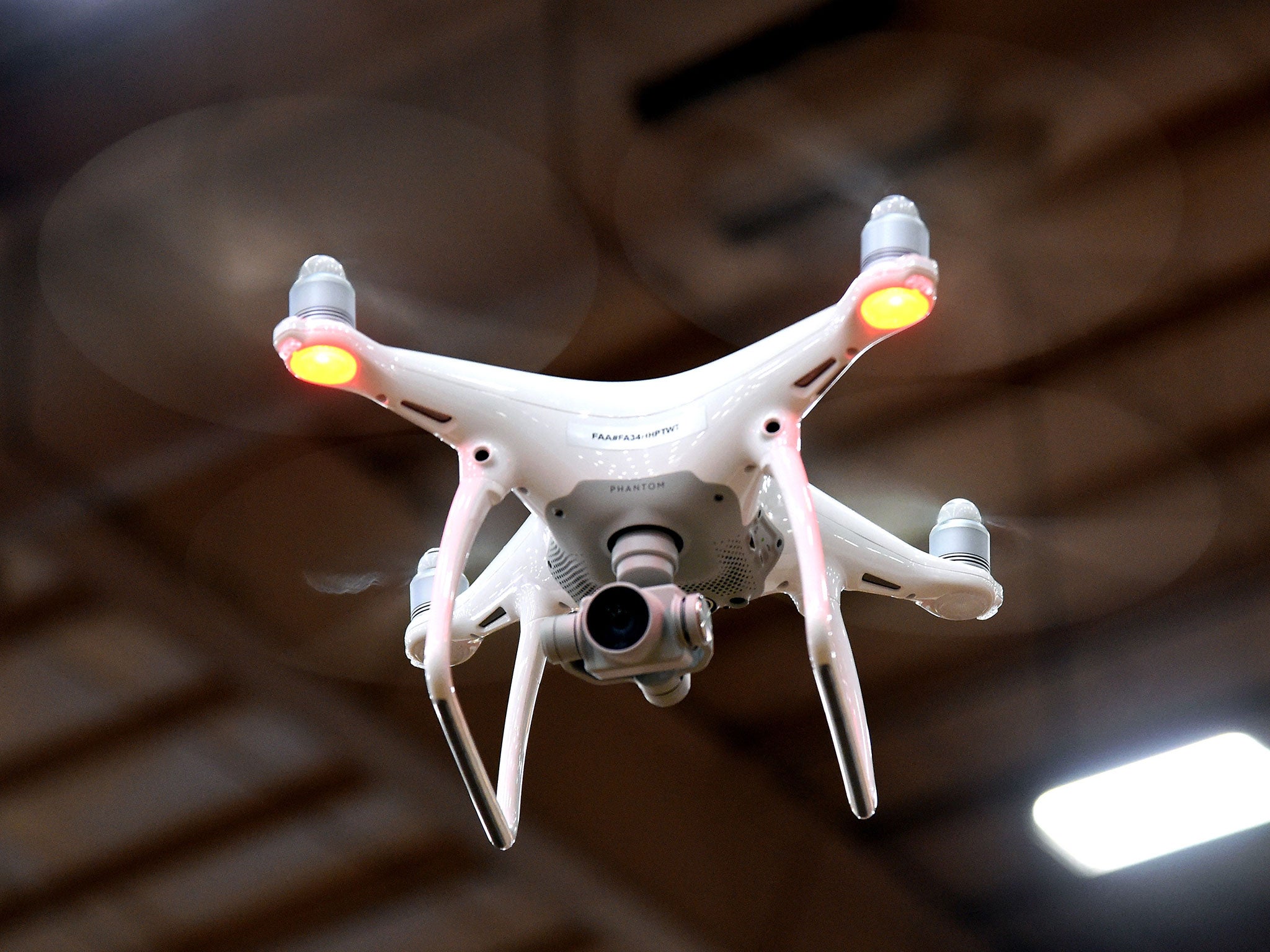Drone safety crackdown on reckless users could see mandatory registration introduced
Proposal part of Department for Transport consultation on improving drone safety over concerns about dangerous flying and use of the technology to deliver drugs and weapons into prisons

Mandatory registration for new drones could be introduced in a bid to crack down on reckless users.
The proposal is part of a Department for Transport (DfT) consultation on improving drone safety.
It is hoped the scheme could help authorities identify the owners of drones that are flown illegally.
Other measures being consulted on include:
- Tougher penalties for flying in restricted areas such as near airports and prisons
- New warning signs around no-fly zones
- Making drones electronically identifiable so the owner's details can be passed to police if they are spotted breaking the law.
The consultation will also consider whether there is a need for a new criminal offence for misuse of drones.
Professional services firm PwC published a report in May that estimated that the global market for drone use will be worth $127 billion (£103 billion) in the coming years.
Aviation minister Lord Ahmad of Wimbledon claimed the Government was taking a “common sense approach” to ensuring the safe development of the technology in the UK.

He said: “Drones have enormous economic potential and are already being used by emergency services, transport and energy providers and conservation groups to improve services, respond to incidents and save lives.
“While the vast majority of drone users are law-abiding and have good intentions, some operators are not aware of the rules, or choose to break them, putting public safety, privacy and security at risk.”
Some 59 near misses involving drones and aircraft have featured in UK Airprox Board (UKAB) reports over the past 12 months.
On August 4 a drone the size of a football was flown around 20 metres from a passenger jet.
The Airbus A320's first officer shouted “look!” as the device passed next to the right wing at around 11,000ft above south east London, according to the UKAB report.
Former RAF and British Airways pilot Steve Landells, a flight safety specialist at the British Airline Pilots' Association, welcomed the launch of the DfT consultation.
He said: “Pilots are concerned about the growing number of near misses and the potential for catastrophe should a collision occur.
“At the same time, Balpa believes drone operators, especially hobbyists, need to be made aware of the potential dangers of irresponsible flying.
“We support the DfT in pressing for better education, compulsory registration and high profile prosecution for careless operators.”
Under Civil Aviation Authority (CAA) rules, drones must not be flown above 400ft or within 150ft of people or property.
They must also be kept at least 500ft away from crowds and built up areas, and must not fly over such locations at any height.
Last month the CAA launched a new website to publish its revised code of conduct for drone users, labelled the dronecode.
CAA policy director Tim Johnson said: “Our priority is the safe operation of drones and we cannot underestimate the importance of understanding how to use drones safely and responsibly.”
Andrew Sage, a director at air traffic control company Nats, said: “Nats fully supports the development of the drone industry and is committed to creating a safe and efficient airspace environment that meets the needs of both manned and unmanned aircraft operators.”
In November Justice Secretary Liz Truss unveiled her blueprint for prison reform, including the introduction of no fly zones to stop drones dropping drugs and other contraband into jail grounds.
PA
Join our commenting forum
Join thought-provoking conversations, follow other Independent readers and see their replies
Comments
Bookmark popover
Removed from bookmarks